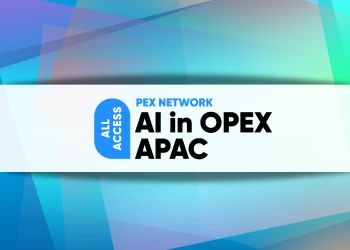3 Ways Google is Advancing AI
Google is Pushing the Boundaries of Machine Intelligence. But will it be enough to dominate the future of AI
Add bookmark
If the visionaries at Google have their way, the words “Google” and “artificial intelligence” will soon be synonymous.
Along with other big tech companies such as Microsoft, Amazon and Apple, Google is investing billions into AI research and development - both internally and externally - with every intention of dominating the market in years to come.
In the past 6 months, Google has made a number of important AI advancements. Here is a look at 3.
DeepMind Perceiver IO
In 2017, Google made headlines when it revealed the Transformer, “ a novel neural network architecture based on a self-attention mechanism that we believe to be particularly well suited for language understanding.” From this innovation stemmed numerous autoregressive language models that uses deep learning to produce human-like text such as Google's BERT and OpenAI's GPT-3.
However, like all other existing AI architectures and Systems, the Transformer is a one trick pony and only processes one type of data: text.
The DeepMind Perceiver, unveiled in March 2021, expands on the Transformer by processing multiple types of inputs at once such as images, point clouds, audio, and video inputs). As Tiernan Ray of ZDNet puts it, the Perceiver represents another milestone in the race to build “an envisioned super-model of deep learning, a neural network that could perform a plethora of tasks, and would learn faster and with less data.”
Just a few months later, in July 2021, Google-owned Deepmind introduced Perceiver IO, a more “general version” of the Perceiver architecture capable of producing “a wide variety of outputs from many different inputs, making it applicable to real-world domains like language, vision, and multimodal understanding as well as challenging games like StarCraft II.”
Building a Mobile AI Computer
For the majority of its history, Google has been known as a software company. However, Google has slowly and steadily expanding into the hardware market over the past few years with the introduction of Pixel smartphones, Android TVs, Chromebooks and so on.
It’s latest entry into the hardware market: Tensor, it’s the first system-on-chip (SoC). Designed specifically to power Google’s Pixel 6 Smartphones, the chip is said to be capable of running multiple machine learning (ML) and AI-intensive tasks simultaneously without overheating the device.
In the near-term, Pixel 6 users will enjoy improvements in speech recognition, video processing and photography (three areas Apple is currently dominating). However, this chip also represents an evolution from mobile computing towards “ambient computing” - a distributed computing system where devices like sensors, speakers and displays are embedded in the environment all around you.
AI Ethics Revisited
More so than perhaps any other company, Google has faced a tremendous amount of scrutiny on the ethics of its AI practices. From massive employee protests over its involvement in Project Maven to the controversial firings of two prominent AI ethics researchers, Google’s reputation as a responsible steward of AI has come into question, to say the least.
In an effort to rebuild trust with the public, AI researchers and its own employees, Google has reiterated its commitment to ethical AI and even promised to double its AI ethics staffe. In late June 2021, Google even shared “An update on our progress in responsible AI innovation. Penned by Marian Croak, VP, Responsible AI and Human-Centered Technology, and Kent Walker, SVP of Global Affairs, this blog post outlines how they’re operationalizing AI ethics with new trainings, tools and processes.
For example, the responsible AI team is currently testing a new Know Your Data (in beta) tool designed to help developers understand the quality of datasets and more effectively identify/mitigate potential fairness and bias issues.
They’ve also implemented a new review process for AI projects in development to ensure they meet Google’s new ethics and fairness standards. These reviews are led by a multidisciplinary Responsible Innovation team, which draws on expertise in disciplines including trust and safety, human rights, public policy, law, sustainability, and product management.

































